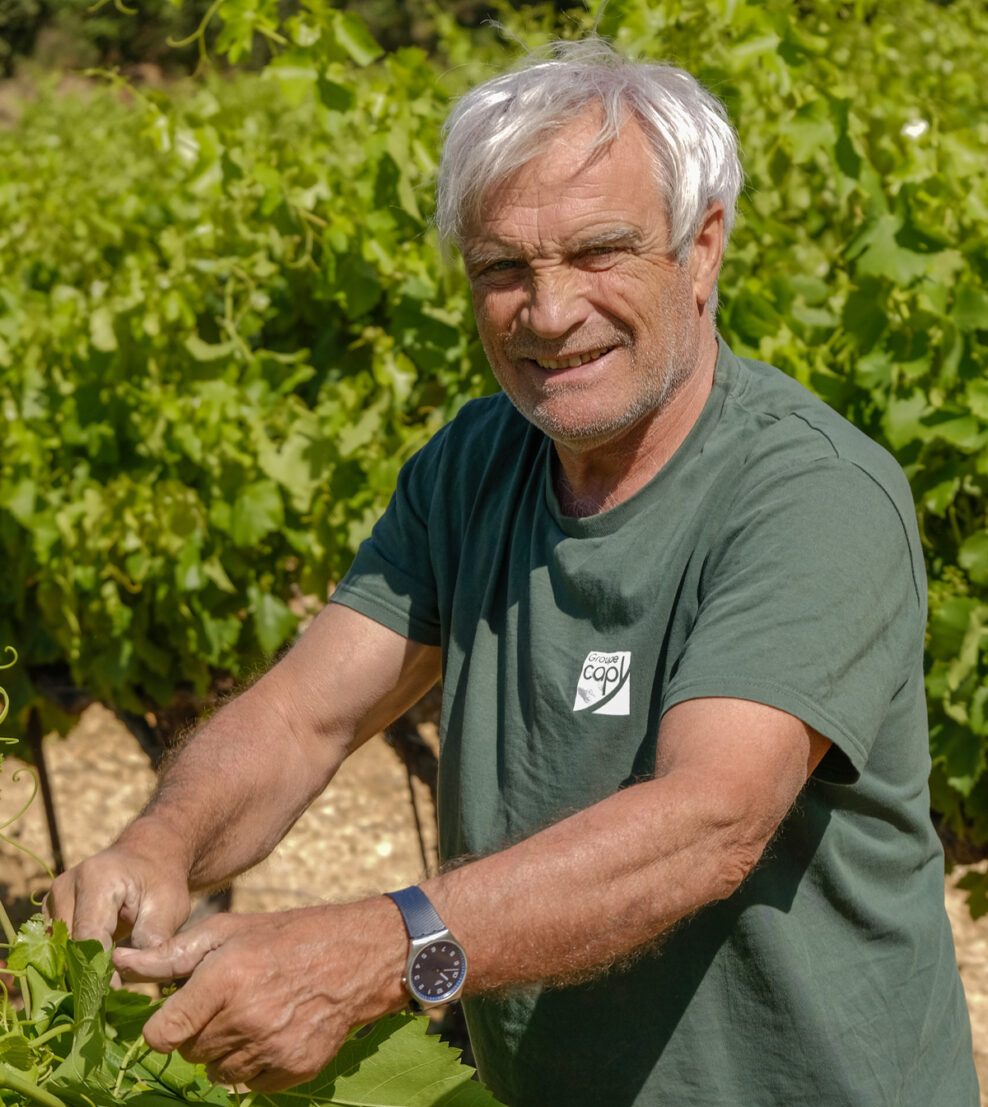



If you’re familiar with Cairanne, renowned for its exceptional terroir within the expansive Côtes-du-Rhône-Villages appellation, chances are, or should be as from now, Marcel Richaud’s name rings a bell.
Hailing from a lineage of vineyard cultivators who traditionally thrived by supplying grapes to the local cooperative, Marcel’s decision, at a mere 17 years old, to pursue an independent winemaking path was met with astonishment by his father. To the elder Richaud, this venture seemed unfathomable and fraught with risk – a venture with no guaranteed rewards, increased toil, and diminished returns. Nonetheless, undeterred by skepticism, Marcel embarked on his journey, starting with 14 hectares of his aunt’s vineyards. He crafted his inaugural vintage at the age of 19, within a ramshackle cellar lacking even a roof.
Today, Marcel enjoys retirement while his progeny, Thomas, Claire, and Edith, oversee the estate’s operations. Over the years, the estate burgeoned to a substantial 80 hectares, a result of Marcel’s gradual reclamation of familial vineyards from the cooperative, alongside strategic land acquisitions. Roughly 40 hectares originate from ancestral holdings, with the remaining 40 hectares procured or planted since the 1980s.
Diverging from the norm, the estate harbors fewer Grenache vines than typical, comprising one quarter of the total plantation, with equivalent proportions of Syrah and Mourvèdre. The residual Cinsault and local varietals contribute to the unique character of Richaud’s wines, which boast balance and finesse. Particularly, Mourvèdre assumes a pivotal role in tempering Grenache’s tendency towards high alcohol levels, necessitating ample sunlight and later harvesting, especially given Cairanne’s northerly position within its cultivation region.
Vinification occurs in large cement vats, with each varietal fermented separately until blending approximately eight months later. In 2000, a cellar constructed from yellow sandstone blocks sourced from the Pont du Gard quarry facilitated the integration of casks and barriques into the winemaking process. Utilizing native yeasts, the wines undergo neither fining nor filtration, with minimal sulfur introduced solely at bottling.
With sobriety and finesse this are wines the address a pure line expression resonated with energy. Excellence and low intervention meant to grace tables worldwide.